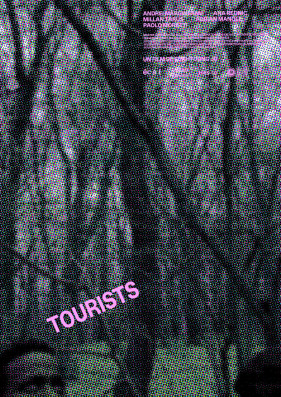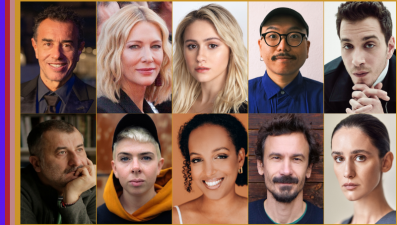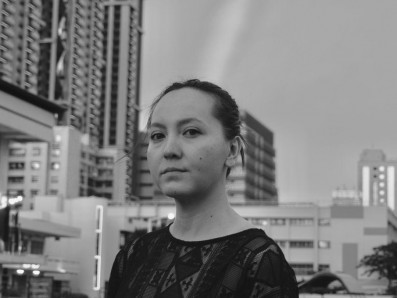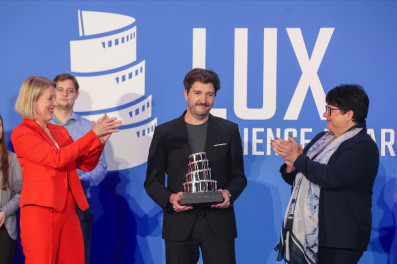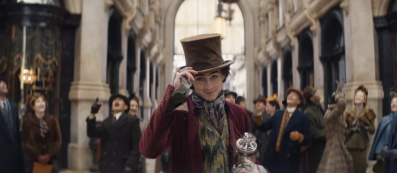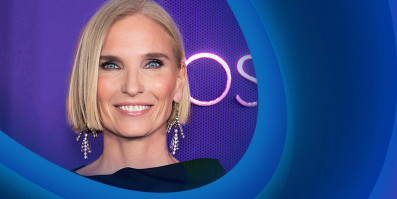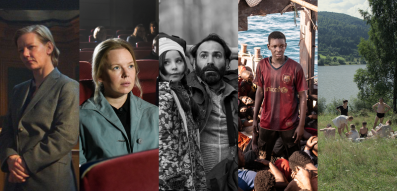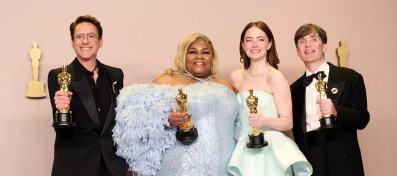On Body And Soul
A review of Hungarian's critically acclaimed film
On Body And Soul
„I too,
Quite collected at cocktail parties,
Meanwhile in my head
I'm undergoing an open-heart surgery“
Anne Sexton, Red Riding Hood
Opening on a low-hued shot of winter woods is a deer followed by a doe under sturdy grounds. Later revealed as the dream of two co-workers meeting in animals form their romantic paragons, Ildikó Enyedi's lyrical take on emotional bonds between two closed-off individuals explores growing attachment in the backdrop of an abattoir. The sequences range in a heartless rampage of ever-arriving cattle, heavily swinging unto their metal prison, only to be met with a silent click of beheading. As some unnatural sails on a deathbed, lifeless bodies of what was once a living and breathing being are skillfully pulled for the n-th time in a day on holders, desecration of their own mess cleared away by ripping their guts opened. Blood drips relentlessly only to be shunned at the end of the day as the meat has already been graded. This cruelty is introduced as one of two forces, bringing the vile existence of an institutional, necessary butchering next to a voiceless attachment of main characters. Géza Morcsányi as Endre in his sixties forms a particularly stoic but equally timid half to Alexandra Borbély as Maria, with her social skills put well without explanation or handout to Asperger's plane.
Meeting in dreams flows unrevealed for a part of the film before a mating powder is taken and dangerously misused. As the entire workforce is obligated to meet a psychiatric evaluation, Réka Tenki as Klára enters this tense energetic circle of already stirred urges, gossips, and love affairs only to unravel for us, Endre and Maria's affinity in the realm of sleep. However, both represent solemn entities with Endre being apter in existing among the battering rhythm of our time, while Maria is existing through safeguarding depersonalization of experience, used to be merely on the margins of a rulebook. Enyedi managed to write and process a visual movement of souls recognizing each other, their composure almost unpierced as heart and mind batter analyzing every section of togetherness. Both of these protagonists appear with a deep-seated gentleness, difficult to command within a bone-dry carving modern age brings. With a severed left-hand hinting at his inarticulate emotionality or his sexual disability, Endre at one point suggests he had closed the doors to a life with someone a couple of years before. Maria, it would seem, has little to no past adventures, her body tensing as soon as the private sphere around her is touched by anyone's hand. The attention put in the communication taking place between the two is of such pure, accepting nature, yet easily endangered by misunderstanding. In love, the fear grows twice as strong. Endre and Maria are fragilities entangled in a most profound belonging, their way being scarred with every growth of intimacy. Producing a stillness so vast, their recognition makes one forget all the insecurities as their connection is proved to be a fated event.
It is interesting to see this sensibility confronted with ripping corpses and heads off future meals washed quickly between lunch breaks. One row of beheading, lunchbreak, skinning and cutting then some smoking is done with a coffee in hand. Fragments of frozen silence round abattoir's closing time. Empty washing rooms, sinks with some dripping water still leaking on pristine metal rims, tiles already scrubbed with impatient hands of a heavy cleaner, dried blood disappearing swiftly in waves trough the gritted teeth of vents. This disposable reality is confronted with the crystal clarity of Enyedi's intention and acceptance. The world consists of places where life is not only consumed (from the point of employment) but also objectified. Hell is other people and this time it is blue and red, sometimes blindingly but unflinchingly so. With subdued shades, Máté Herbal matches the bleak pathology of the slaughterhouse to a more muted atmosphere of decaying dream. Surroundings are only rarely lit with brightness of a fine sunny day, depending on the overlapping play lead characters pose. The entrances are shadowed, contrasted moreover so, making the lighting a deciding instrument of bounding. Moreover, the leading range of parameters set from the emotional and metaphysical range (the collision of body and soul, dream and reality, closeness and distance, abandonment or staying) appear in the undertones of waking world only to push the disillusioning effect further. Maria's awareness is unfailing, her fear and insecurity amongst normative of humanity obvious but suppressed. The dark of cool measuring room where she sits with a mind buzzing without an error inside a referential frame of regulations seems to fit her better than a simple walk in a park. The soul is bare and has no skin to pierce, but it can bleed in many ways. This quality Alexandra Borbély shows with utmost care as she bears the most of the emotional cargo. The graceful learnings of Maria make her vulnerability more visible but also completely endearing, though by the end they almost turn lethal. The safety of a known is difficult to abandon when one battles with the deciphering of human connections. There is, in it, an elegant kind of loneliness that comes with this unspoken distancing from the debilitating day-to-day exercise of killing. And it takes a certain someone with similar sorrow to match this inbound tranquillity. In the morning after, the glory of the end comes with the security to fall in the arms of a dream that came to stay under the great big sky of mercy.


